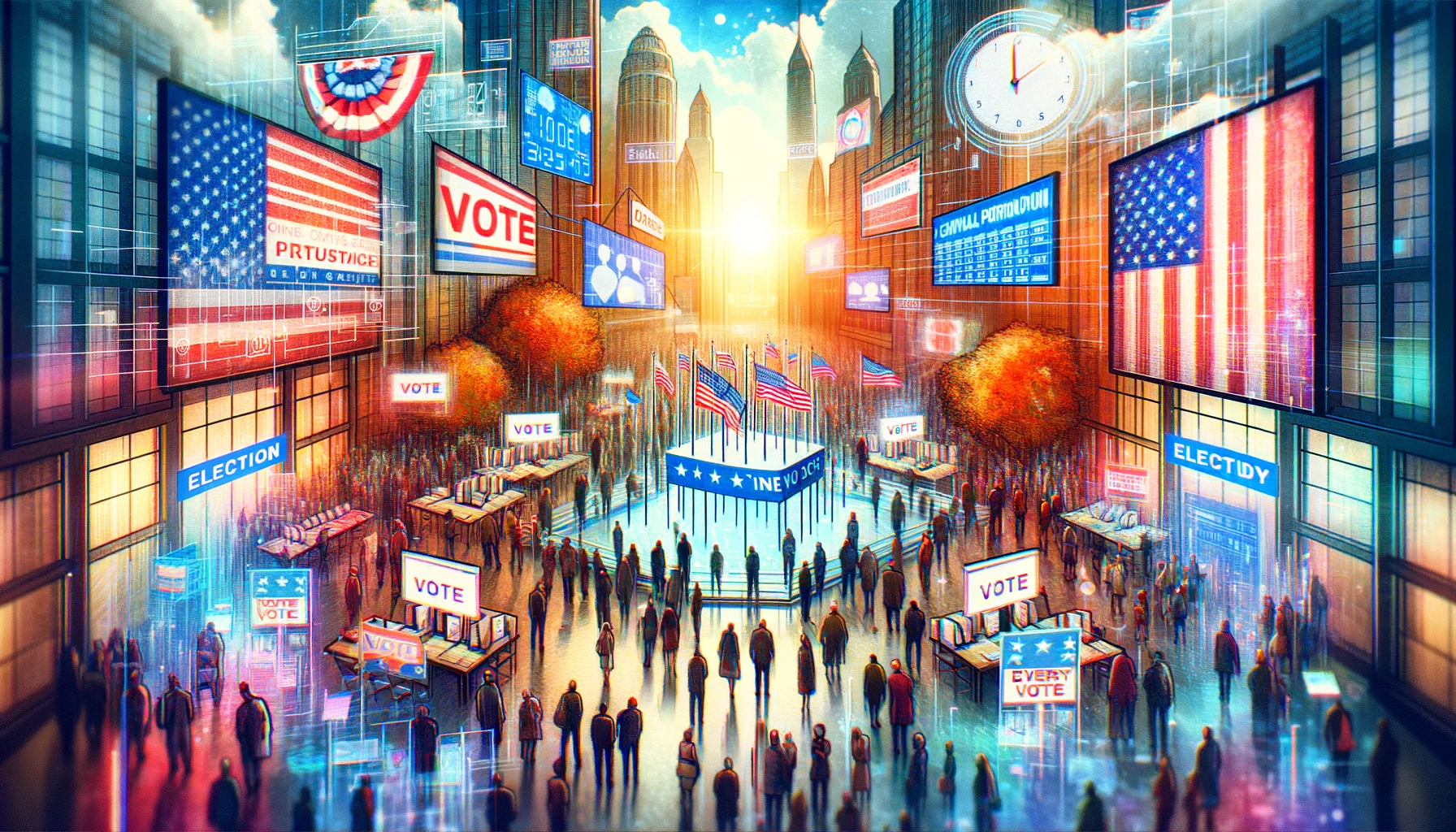What to expect on election day
Written 7 November 2016

Back in May, I predicted that Donald Trump would win the election. Most responses were skeptical, saying that there is no chance that Trump will win. The skepticism stopped once polls showed Trump ahead in several polls, and 538 gave Trump significant chances of winning. I will now say that I am no longer sure who will win the election, nor was I sure that Trump would win. My (unscientific) calculation that Trump had a 60% chance of winning simply meant that if the election were to be held ten times, Trump would win six times and Clinton four.
Although Trump’s polling is not above Clinton’s I believe that there may be a significant — but not deliberate — undercount. Trump has brought under his wing a large number of people who have never voted before, and are therefore not being polled very heavily. Trump won the primaries in landslides, gathering more votes than in any other GOP primary before, largely because of this. Furthermore, there is no doubt worry from some Trump supporters to tell pollsters who they are voting for, in fear that there may be a backlash. Because of this, I think that the vote will be very close, perhaps edging towards a Trump victory.
However, I do not want to focus so much on predicting the electoral results as much as I want to talk about the geopolitical events that we may see. Donald Trump’s talk of a rigged election have been predicted by a forecaster much greater than myself, Nostradamus, who said: “The false message about the rigged election / to run through the city stopping the broken pact; / voices bought, chapel stained with blood, / the empire contracted to another one.” Although I don’t believe that Nostradamus had any special abilities, the quatrain is scary enough to make us consider what may happen during the election.
Beyond being dangerous, Trump’s talk speaks to an anti-elitist resentment shared by many Americans who believe that the economy is rigged against them in favor of special interests. This resentment began in earnest with the Tea Party and Occupy Wall Street movements that were upset that Wall Street speculators who damaged the economy were bailed out instead of the common people. This sort of resentment is very dangerous and the fact that political elites have failed to address it properly is why Trump and Sanders have done so well in this election. This resentment creates a climate of political sensationalism, and sometimes violence.
While I do not expect any major violence during the election, I do fear that foreign elements may try to stoke it. A lot has been made about the Russians hacking the DNC and electoral systems, and while the Russians do not reasonably expect to bring Trump into the White House, they can do enough to undermine faith in US elections. There are two reasons: 1) Destabilize the US; 2) Make American democracy look chaotic and corrupt for Russian audiences. But we have to be careful of focusing on the Russians too much and we need to realize that other states like China and Iran have similar interests.
Both during and after the election, I suspect that there may be disinformation of vote rigging and even disinformation about incidents of violence. You may see sources like RT and other Russian-affiliated outlets describing these things, hoping that Western audiences and publications pick them up and spread the stories to stoke instability. These outlets may take advantage of minor cases of irregularities and blow them out of proportion to create a sense that the election is being rigged. In this political climate, there is no doubt that pundits and maybe even politicians may pick it up, even if the source is questionable. There will also likely be DDOS attacks and attempts to change records to further sow doubt into US audiences.
While I do not think there will be any large scale violence, I do think that foreign influences may take advantage of distrust in the system for their own gain. While it may not have an immediate effect, it will likely have an effect in the long run, making Americans believe that their democracy is corrupted and not responsive to their needs. When major crisis arises, this can lead to devastating consequences and major instability. US political elites need to make honest appeals to voters to heal the growing distrust in American institutions.